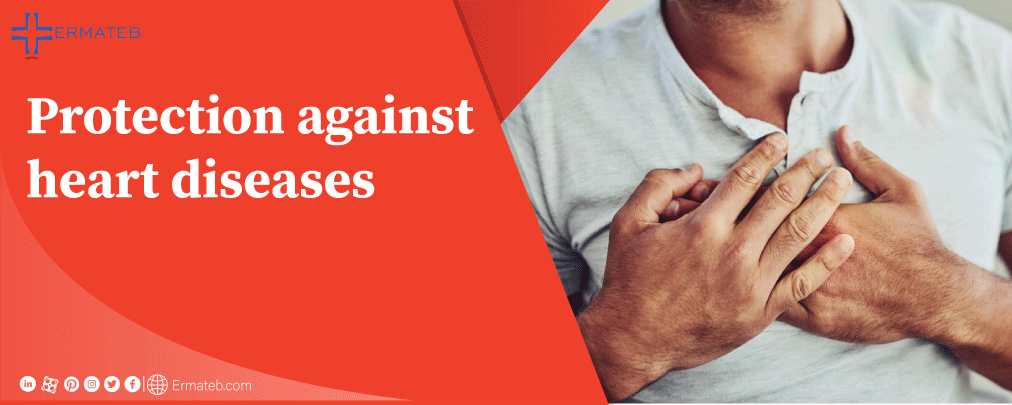
Heart diseases are one of the most common reasons for death in the world. Although patients can be survived from death, these types of diseases cause disability. Some specific risks can increase the chance of heart disease. There are two different types of risk factors, some of them can be monitored and some of them are related to features that can not be controlled. Being aware of these controllable factors can prevent heart diseases.
Age: aging increases the chance of heart diseases. Menage 45 and older and women at the ages older than 55 have a greater chance to be involved with heart diseases.
Sex: some of the factors related to sex can affect the possibility of heart diseases. As an example estrogen which is a sex hormone in women can protect against some heart diseases. Although this hormone decreases the chance, diabetes affects the possibility of heart diseases in women more than in men
Race and ethnicity: race can affect heart diseases possibility especially in African Americans who are more likely to get heart diseases than Hispanic Americans. Some Asian groups, like East Asians, have lower rates, but South Asians have higher rates.
Familial history: heart diseases possibility will be increased if you have a close member of the family who has heart disease especially at an early age.
However, the risk factors which were mentioned before can not be controlled, fortunately, many things can help patients to prevent getting heart diseases including :
1. Blood pressure: having high blood pressure is one of the major risk factors for heart diseases. Try to check your blood pressure regularly. If your blood pressure is normal you can check it annually but if it's high you need to measure your blood pressure more often. Take steps, including lifestyle changes, to prevent or control high blood pressure.
2. Cholesterol and triglycerides: try to keep your cholesterol and triglycerides levels under control. High levels of cholesterol can block your arteries and it means you have a great chance for heart attack and coronary artery diseases. The first step for decreasing high levels of cholesterol is changing lifestyle but if it's not helping you have to consume specific medications. High levels of triglycerides may also raise the risk of coronary artery disease, especially in women.
3. Having a healthy weight: try to stay at a healthy weight. Overweighting or having obesity increases the chance of heart disease. It's because there is always a connection between risk factors like high blood pressure, high cholesterol and triglycerides, diabetes, and overweight. Monitoring the weight can lower the risk of heart diseases.
4. Healthy diet: it's important to limit using saturated fats, foods high in carbohydrates and sodium. Try to eat plenty of fresh fruits, vegetables, whole grains and ... One of the good diets for lowering weight is DASH. DASH can affect your weight, cholesterol levels, and your blood pressure.
5. Exercises: get regular exercise. Exercising has a lot of advantages like strengthening the heart muscle, improving heart circulation, maintaining a healthy weight, lowering cholesterol and triglycerides, decreasing blood pressure. And as it is completely clear these effects can decrease your chance of getting heart disease.
6. Limiting alcohol: alcohol increases your blood pressure and adds extra calories. Due to this people who drink alcohol too much are mostly overweight. Both of these reasons ease heart diseases more possible. Men should limit their drinking and don't drink more than two alcoholic drinks per day, and women should not have more than one.
7. Smoking: cigarette smoke can affect your blood pressure and put you at a higher risk for strokes and heart attacks. It's better to talk with your health care provider for finding the best way to quit smoking.
8. Stress: try to manage your stress. Stress is connected to heart diseases in many ways including causing high blood pressure, overweighting and ... Having extreme stress is a trigger for heart attacks. There are various methods for coping with stress like limiting heavy drinking and smoking, exercising, listening to music, focusing on peaceful subjects, meditating, and ...
9. If you are involved with diabetes, diabetes Doubles your risk of getting heart disease. High blood sugar damages your blood vessels and nerves. Due to these, it is important to get tested for diabetes, and if you have it, to keep it under control.
10. Sleeping: you must get enough sleep during the day. Not having enough sleep increases your risk of high blood pressure, diabetes, obesity, stress, and ... As was mentioned before these are red flags for getting heart diseases. Try to make good
Make sure that you get enough sleep. If you don't get enough sleep, you raise your risk of high blood pressure, obesity, and diabetes. Those three things can raise your risk for heart disease. Most adults need 7 to 9 hours of sleep per night. Make sure that you have good sleep habits. If you have frequent sleep problems, contact your health care provider. One problem, sleep apnea, causes people to briefly stop breathing many times during sleep. This interferes with your ability to get a good rest and can raise your risk of heart disease. If you think you might have it, ask your doctor about having a sleep study. And if you do have sleep apnea, make sure that you get treatment for it.

